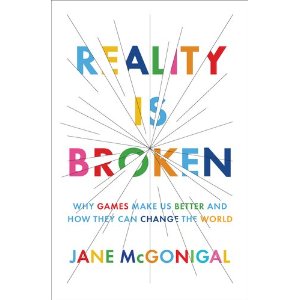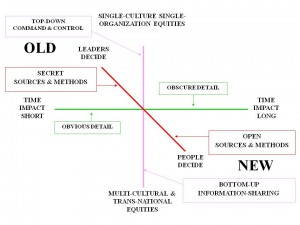
Jane McGonigal
![]() 6 Star for Concept–Ignores Past Pioneers–Energizes Us All
6 Star for Concept–Ignores Past Pioneers–Energizes Us All
February 28, 2011
I took the time to read all of the reviews to date, and was reminded again of the chasm between those who understand technology and its possibilities, and those who do not. Being among the latter, in part because I am a veteran of 30 years of watching the US Government waste trillions over that period on too much badly designed technology (government specifications, cost plus) for the wrong reasons and generally without a positive outcome [the Internet being an exception], I must respect–as the author respects with her obviously counter-ripostive editorial interview here at Amazon–both the importance of getting a grip on reality, and the importance of being more respectful of past pioneers, such Buckminster Fuller (RIP) and Medard Gabel (co-creator with Fuller of the analog World Game, creator of the architecture for the digital EarthGame(TM), and recent contributing editor to Designing a World That Works for All: How the Youth of the World are Creating Real-World Solutions for the UN Millenium Development Goals and Beyond (Volume 1), and Russell Ackoff [e.g. Redesigning Society (Stanford Business Books) as well as John N. Warfield [e.g Societal Systems: Planning, Policy and Complexity (Wiley Series on Systems Engineering & Analysis). And then there are the 55 authors in Collective Intelligence: Creating a Prosperous World at Peace, including Ms. Jan Watkins, Doug Englebart, Mark Tovey. In short, the WORST thing one can say about this book is that the author has had an immaculate conception to her great credit, but one that could have been vastly better grounded had she done her homework and a multi-disciplinary literature review, something her PhD committee evidently did not consider necessary.
Having said that, this book is without question a 6+, a ranking achieved by the top 10% of the non-fiction books and DVDs I have reviewed here at Amazon (1692 not counting this one). This is a world-changing book, and while the author has benefited from a fabulous personality and personal presence, and first rate representation and promotion, when read carefully and completely and placed in the context of all that is about us today, the originality, relevance, and imminent potential of this book and the ideas in this book cannot be denied. The author does not do what Medard Gabel has done–provide the architectural underpinings for the digital EarthGame(TM) and global to local holistic “dashboards” that integrate the ten high-level threats to humanity, the twelve core policies, the true costs of every good and service–she is still at the “one of” level rather than the meta level–but if she can reach out to Medard Gabel and others and actually harness not just the cognitive surplus of the crowds, but the contextual pioneering of those who have spent decades before her thinking and doing in this arena, then she will be the righteous public face of what I am starting to call “Open Everything: from Autonomous Internet to Global Panarchy.”





